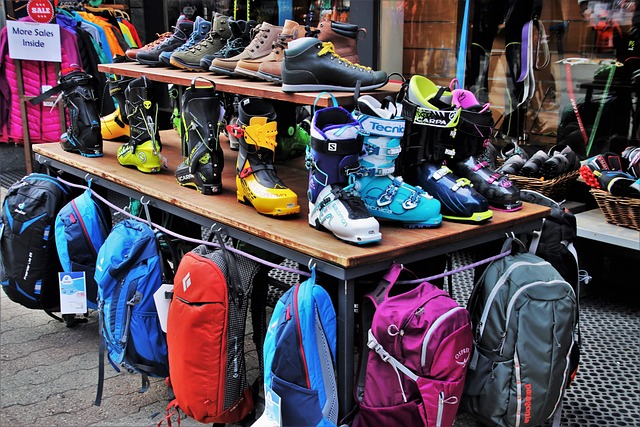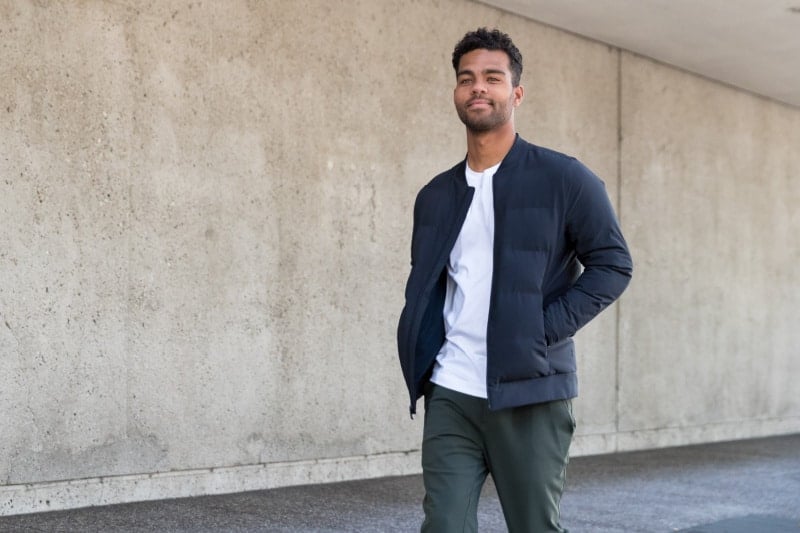
We have witnessed many changes in the industry over the past few years. Technology has evolved and we now have a lot of AI/machine learning in the customer services area. Virtual reality technology has also revolutionized the way that many hospitality companies market their services and products. Global events influence trends in hospitality. Companies had to be more concerned about safety and health after the COVID-19 Pandemic. Other global events, such as climate change/sustainable, have caused companies to pay more attention to the needs of their local markets.
Sustainability
There are many sustainability trends emerging in the hospitality sector. Many hotels are looking to cut down on food waste and water consumption. Many have installed electric vehicle charging stations and energy-efficient HVAC systems. Some even have green roofs with solar panels. Others are upgrading lighting systems and switching to LED light bulbs. Restaurants have also begun installing air cooled ice machines.
Many hotels are now catering to local tastes by offering local cuisines. Many hotels offer vegetarian and vegan options. You can also find farmhouse accommodation and Airbnb, which offer a more authentic experience. You can also use the services of travel agents to help you plan your local excursions and taste local cuisine. While many hospitality companies used to serve sugary drinks and fast food, many now offer healthy options.

IoT technology
IoT is an ideal tool for hoteliers to track inventory and manage resources in real-time. This technology can be used to personalize guest experiences. For example, connected asset trackers can help staff find equipment faster and cut down on wait times. Smart equipment can also monitor inventory and notify staff when items have left the guest's rooms.
Hoteliers can now offer better guest experiences, lower energy consumption, and improve guest satisfaction with the use of IoT. These technologies can be used to reduce operating costs and generate new revenue streams for hoteliers. The hospitality industry is still far behind the rest in terms of adopting new technologies. However, this trend is on the rise.
Keyless entry
Although it can be convenient for guests to use keyless entry technology in hotels, it can be expensive. Hotels may be reluctant to install these systems because of the cost of retrofitting a large number of doors. Starwood Hotels & Resorts or Hilton Worldwide may have to upgrade the hotel. However, both Starwood Hotels & Resorts (or an independent owner) have said they will pay a portion to install keyless entry. Both companies hope to offer the technology to guests by the end of next year.
Keyless entry is not only a convenient way to ensure guest satisfaction, but it can also lead to direct bookings and re-bookings. This new technology is being used by many hotels to increase direct bookings.

IoT-enabled room
IoT-enabled hotels offer many benefits. These include smarter service and automated front desk management. By utilizing the Internet of Things, hoteliers can track the movement of guests, their luggage, and even cleaning carts. This data helps hotel managers better manage their inventory. In addition, IoT-enabled rooms can help hotel guests customize their room preferences. A virtual assistant can be asked to adjust the temperature and wake guests up at a specific time.
IoT enabled rooms in hotels can help improve guest satisfaction and make the experience as seamless as possible. Guests can select their preferences from a central app, and the room will activate them. Additionally, smart devices can be used to detect movement and activity in the room and then turn off certain appliances when guests leave.
FAQ
What will consumers buy post-pandemic 2022?
Consumers will continue to buy products that help them live healthier lives and protect themselves from illness. This includes foods like snacks, drinks, petfood, and supplements.
They also tend to spend more money on health insurance, which is expected to increase by 10% per year for the next decade.
The biggest change we expect is an increased focus on wellness and prevention. Consumers will look to purchase products that promote healthy lifestyles and prevent disease.
This means you should look for products that can help you sleep better, reduce stress levels, or keep your hair and skin looking younger.
Healthy living will become more important to shoppers because of the pandemic, leading to higher spending on preventive care.
What role does Instagram play in the fashion industry?
Instagram has been a popular platform for brands to network with influencers. It's easy to see why, because they can reach a vast audience.
But reaching an audience is only part of the equation. Influencer marketing is all about engagement. It's about building relationships and trust with your followers. And that takes time.
It's about being consistent and reliable. Quality content should be posted regularly. Also, how to respond to questions and comments.
Insta is great for engaging fans. But, it's not great for selling products. Here's where social media platforms come in.
What changes will consumers' behavior be after COVID-19?
We all know that people are buying less right now. However, this doesn't mean that they won't spend more money on themselves in the future.
So if you plan on going shopping, now would be a good time to hit up your favorite stores. Shopping may be something you enjoy more than ever.
Although there are less people in malls, you still have many options. Remember to be safe and follow the social distancing guidelines.
Also, remember to wash your hands regularly. This simple action can prevent the spread o coronavirus.
Now that you have seen some trends that are shaping the future of retail, let's take an in-depth look at what's hot.
What trends do you predict for the fashion industry in 2023?
The future is uncertain. There are two main trends in fashion that we can anticipate to continue. Athleisure is the second. Athleisure has seen a rise in yoga pants, shorts, tanks, sweatshirts and sweatshirts.
Not only are clothing brands adopting more casual styles, but so are other fashion brands. These styles are becoming more popular among athletes. Athleisure clothes are becoming more fashionable among tennis stars, like Serena Williams who wore them while playing against Naomi Osaka.
The growing demand for personalized products is another trend. Nike has begun making shoes that fit everyone's feet, according to brands like Nike.
As technology develops, wearable tech will be more common. We may also see a shift in the way we shop. As self-service kiosks grow in popularity, we may see the rise mobile apps that allow us tailor our outfits.
Statistics
- The percentage of shoppers likely or somewhat likely to purchase top social platforms increased across the board in the third quarter of 2022 compared to the second, with TikTok seeing the largest jump. (junglescout.com)
- While 19% of respondents state they didn't travel in the past two years, other families' favorite experiences included: domestic travel (19%), beach resorts (12%), road trips (11%), international travel (10%), staycations (7%), camping (6%), and more.1 (americanexpress.com)
- As experts quabble over the official call, most consumers are already experiencing economic uncertainty: 52% say their household income is unstable, up 36% from three months ago, and 73% have either reduced or maintained their overall spending levels. (junglescout.com)
- 56% of respondents stated they held off on traveling for major entertainment events last year, but have plans to return to these events this year.1 (americanexpress.com)
- 70% of parents surveyed agree that in 2022 they are planning to take their first international trip with their children since before the pandemic. (americanexpress.com)
External Links
How To
What trends will impact the travel industry?
The world is changing rapidly, and our business model is evolving as well. The digital revolution refers to more than the internet. We're talking about how technology is driving change across industries and impacting us all.
In the years to come, the industry will undergo many changes. Here are five areas of industry change that will not be lost.
-
Customer Experience
-
Technology
-
Mobile
-
Social Media
-
Connectivity
These are just a few examples of how the future of the travel industry looks, but there are countless ways these trends will impact our lives. Let's take a closer look at each of these areas.
In order to book holidays, customers have become more sophisticated and demanding. Accenture predicts that travelers will spend $8 trillion globally on holiday trips by 2020. It is important for brands to invest heavily in customer care and make sure that customers feel valued and valued during the entire journey.